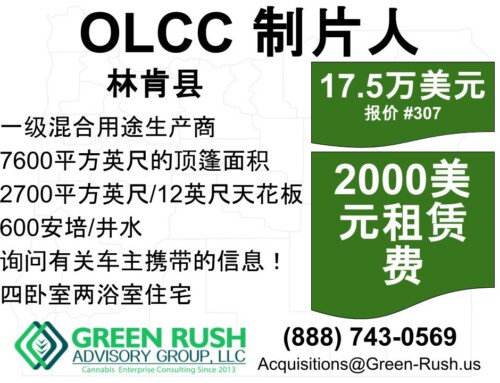The OREGON HEALTH AUTHORITY released its “best answers” to the current regulatory issues surrounding cannabinoid extracts.
While the agency acknowledges that “the laws and rules governing the processing and transfer of extracts will be under further analysis and development in the near future,” they still took a shot at clarifying the previously-allowed-but-now-illegal manufacturing of extracts by medical and recreational marijuana stakeholders.
“The unregistered manufacture of cannabinoid extracts is illegal.”
In the 2016 Legislative Session, the Legislature passed HB 4014, which makes the unregistered or unlicensed manufacture of marijuana extracts illegal. In order to manufacture extracts legally, a processor must to be registered by OHA or be licensed by OLCC.
Dispensaries and Extracts, Concentrates and Edibles
Dispensary sales of concentrates and edibles that come from an unregistered processor to OMMP patients and primary caregivers is currently allowed.
On and after October 1, 2016, all products, including concentrates and edibles, transferred to a dispensary must be from a registered processor (See OAR 333-008-1230(2)(a)). A dispensary may only accept the transfer of extracts from a registered processing site (See OAR 333-008-1230(2)(b)).
The definition of a cannabinoid concentrate and a cannabinoid extract may be found in OAR 333-008-0010 and is as follows: “Cannabinoid concentrate” means a substance obtained by separating cannabinoids from marijuana by: (a) A mechanical extraction process; (b) A chemical extraction process using a nonhydrocarbon-based solvent, such as vegetable glycerin, vegetable oils, animal fats, isopropyl alcohol or ethanol; (c) A chemical extraction process using the hydrocarbon-based solvent carbon dioxide, provided that the process does not involve the use of high heat or pressure; or (d) Any other process authorized in these rules.
“Cannabinoid extract” means a substance obtained by separating cannabinoids from marijuana by: (a) A chemical extraction process using a hydrocarbon-based solvent, such as butane, hexane or propane; or (b) A chemical extraction process using the hydrocarbon-based solvent carbon dioxide, if the process uses high heat or pressure.
Dispensaries may continue to sell or transfer extracts that they have in stock as of March 1, 2016, to OMMP patients with a valid registry identification card. Dispensaries may not accept new transfers of extracts from unregistered processors.
Edibles containing extracts as an ingredient may still be sold to patients, however, for edibles transferred to dispensaries after March 1, 2016, the extract ingredient must be made by a registered processor.
The terms “high heat” and “high pressure” are not clearly defined in Oregon statute. OHA may use its rulemaking authority to more clearly define those terms in the near future.
The processor and the dispensary have the responsibility to comply with all applicable laws.
Registration of Extract Processors
Processors may begin to apply with OHA on April 1, 2016. Please check the processor page for more information. www.healthoregon.org/ommp





